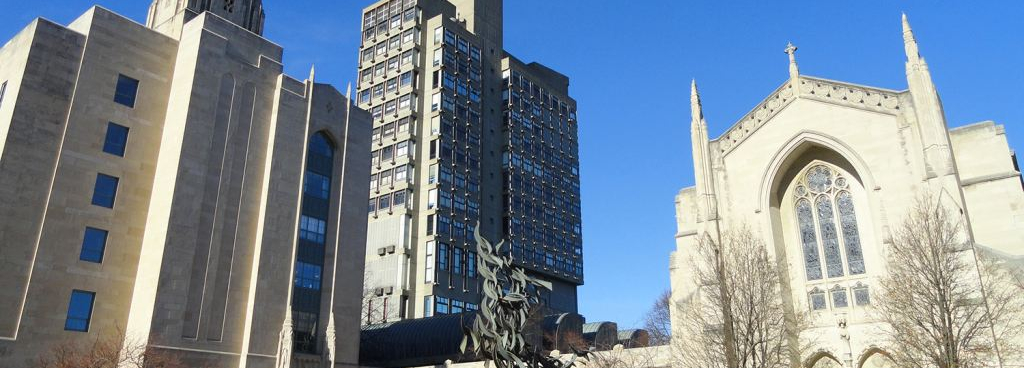IvyWise On-Demand: Boston University: How to Get in and What to Know
Are you considering applying to Boston University (BU)? Whether you are beginning the college search process or finalizing your list, this is a great opportunity to learn all about the university from IvyWise college admissions counselors Christine and Tasha, both Former Assistant Directors of Admissions at BU.
Watch Now
Boston University, or BU as it’s known, is a top private research university in Boston, Massachusetts. The university has 10 undergraduate schools and colleges to choose from, as well as dual degree and double major options.
Boston University has become increasingly competitive throughout the last few years, receiving record-breaking numbers of applications from across the country and around the world. Learning as much as you can about BU can help you increase your chances of admission.
How to Get into Boston University: Table of Contents
- When to Apply to Boston University
- How Hard Is It to Get into Boston University: Early Prep
- How to Actually Get into Boston University: The Application
- Class Profile
- What Makes Boston University Unique?
- Boston University FAQs
When to Apply to Boston University
If you’re considering applying to Boston University, it’s important to understand the various application options and timelines so you can submit your materials on time.
Boston University Deadlines
Boston University’s application deadlines vary slightly from year to year but are always around the same time of the academic year. The deadlines for students applying during the 2024-25 admissions cycle are:
- Early Decision (ED): November 1
- Early Decision 2 (ED II): January 6
- Merit Scholarship Consideration, Regular Decision: December 1
- Regular Decision (RD): January 6
Boston University offers the Presidential Scholarship, which covers half of tuition, and the Trustee Scholarship, which covers all of tuition and fees. Students who want to be considered for either of these merit-based scholarships must apply for Regular Decision admission by December 1.
Students applying ED to Boston University can expect a decision in mid-December. The ED II decision date is in mid-February. Decisions for RD are released in late March.
Early, Rolling, and Regular Decision
There are different application types that students can choose from when applying to college. It’s important to understand the key differences between these application types, like Regular Decision, Early Decision, Early Action, and rolling admissions. Of these options, Boston University offers only Early Decision, Early Decision II, and Regular Decision.
Early Decision and Early Decision II are binding application options — if you are admitted ED or ED II, you must enroll. Early Action is also an early application, but it is non-binding, which means that you can enroll somewhere else. Regular Decision is generally the most competitive admissions round because most students apply RD and there are fewer spots left in the class after early round admissions. RD is non-binding.
While Boston University does not offer rolling admissions, it’s important to know what it is. Rolling admissions is when universities accept applications throughout a prolonged period, from September through May — typically until they fill all the spaces in the class. While this is a more flexible option, students are advised to apply as early as possible.
Waitlisted Applications
If you apply to Boston University Regular Decision, you will receive one of three possible decisions: accepted, denied, or waitlisted. The waitlist is made up of strong students that the university wanted to admit but did not have the space for. If you are waitlisted, you may want to consider enrolling at another school — waitlist admission rates are typically very low at top schools.
Deferrals
If you apply to Boston University Early Decision or Early Decision II, you may receive a deferral admission decision. This means your application will be reevaluated within the Regular Decision applicant pool. So, what should you do if you’ve been deferred? Students who receive a deferral decision from Boston University are advised to submit their mid-year grades.
How Hard Is It to Get into Boston University: Early Prep
Boston University is one of the top universities in the Boston area and one of the country’s top research universities. It is a popular choice on many students’ school lists and receives a high volume of applications every year. To stand out from the pack, start preparing early. Students can improve their chances of admission by doing their research and tailoring their applications accordingly.
Build Your Profile
Boston University is excited about academically rigorous students who have interdisciplinary interests and passions. So, what does Boston University look for? Though Boston University employs the holistic admission review process, which considers several diverse aspects of a student’s application, academic rigor and performance carries the most weight.
Boston University will evaluate how a student’s academic and extracurricular profile matches their interests and goals. Because BU has so many major options and allows students the flexibility to take on double majors and even dual degrees, Boston University values applicants with multiple and diverse interests.
In addition to academic interests, Boston University looks for multitalented and involved students who have made significant contributions to their high schools. Applicants should highlight their involvement in their applications and thread connections to how their interests make them a good fit at BU. Boston University appreciates depth and consistency in extracurricular activities. Rather than list as many activities as possible, applicants should highlight the activities they are the most committed and passionate about.
Visit the Campus and a Class
Visiting campus is the best way to really find out if Boston University is the right fit for you. Located in the heart of Boston’s Commonwealth Avenue, Boston University blends with the city itself. It’s important to plan your visit well in advance so you can register for an official campus visit through the Boston University Office of Undergraduate Admissions. The visit includes an information session with an admissions officer and a current student along with a student-led campus tour. This allows visitors a chance to see a large section of campus and get a feel for student life. Tours of individual schools and colleges are also available.
Can’t make it to campus? BU also offers virtual tours.
Connect with a Student
There’s no better way to learn about a college than speaking directly with a current student. Boston University Admissions has an excellent team of student workers tasked with supporting the admissions office and connecting with prospective and admitted students. You can connect with a student by reaching out to the admissions office via email or phone. If you have specific questions about a major or about the student experience, they will connect you with a student with similar interests.
Learn About Any Student Experiences
There’s nothing like hearing directly from students about their experiences. You can ask questions directly and get honest responses based on firsthand experience. You can also connect with students during a campus visit. Besides the students you will meet during the information session and your campus tour, you can chat with students around campus. Students are proud to be Terriers, and they want to talk about it.
How Do You Actually Get into Boston University: The Application
Boston University uses the Common Application. The earlier you begin to prepare your application, the more strategic you can be about the process and position yourself as the strongest possible candidate. Remember that the admissions process is made up of both hard and soft factors, all of which come together in the holistic review process by which colleges make their admissions decisions.
GPA Requirements
Most colleges don’t have official minimum GPA requirements, including Boston University. However, the most recent Common Data Set shows that the average high school GPA of students admitted for fall 2024 was 3.9. If you want to attend Boston University, your GPA should fall within this range.
SAT and ACT Scores
Boston University is test-optional. However, submitting a strong test score can only benefit you. It’s worth noting that BU superscores both the SAT and ACT.
Personal Statement
The personal statement is one of the most important soft factors of the application process. Choose one of the seven Common App essay prompts and think of it as an opportunity to introduce yourself to the admissions committee and tell them something that isn’t elsewhere in your application. Admissions officers appreciate authenticity, so focus on writing in your own voice.
Essays
Most universities require at least one essay supplement in addition to the Common Application personal statement. Boston University requires one additional supplement for all applicants, regardless of the school or college they choose. The prompt is: What about being a student at Boston University most excites you?
This supplement is an opportunity for you to express your interest in BU. Be as specific as possible about the academic and extracurricular opportunities you’re looking forward to.
Letters of Recommendation
Boston University requires two recommendations, one from your college counselor and one teacher evaluation from a core academic subject. Applicants often submit two teacher evaluations, although only one is required. College counselors are also required to submit a school profile with academic and demographic information about your high school.
Admission Interviews
BU does not offer evaluative interviews. Instead, students are invited to submit a 60-90 second video supplement through Glimpse. This is entirely optional and will not impact your application if you do not submit one. However, this is another opportunity to share more about yourself with the admissions committee.
Please note that if you are applying to the College of Fine Arts, there are additional portfolio, audition, and/or interview requirements.
Contribution to the Boston University Community
Boston University students make valuable contributions to the school community through their wide variety of interests and expertise. As an applicant, you should showcase your academic and extracurricular interests in your application. Ultimately, BU seeks to put together a well-rounded and diverse class of students.
The admissions committee considers each applicant’s soft factors in several ways, including how those factors will contribute to the campus community. This is part of why it’s important to be specific in the Boston University supplement. Tell admissions officers what excites you about BU and how you plan to contribute to the campus community as a student.
Class Profile
BU prides itself on enrolling a diverse student body. You can learn more about student demographics by checking out the most recent class profile. Here are some basic statistics for the class of 2028:
What Makes Boston University Unique?
Boston University is a major research university offering strong programs in a variety of key disciplines, from its College of Engineering to its conservatory-style School of Theatre. Set along either side of the ambling Commonwealth Avenue in Boston’s Allston and Kenmore neighborhoods, it’s one with the city. Though there are about 60 other institutions of higher learning in the Boston area, it is one of a kind in the heart of Boston.
The BU Hub is Boston University’s unique general education program, giving students multiple pathways toward fulfilling their distribution requirements. Students can complete a BU Hub program in Social & Racial Justice or Environment & Society with 10-12 courses that involve six core capacities: Philosophical, Aesthetic, and Historical Interpretation; Scientific and Social Inquiry; Quantitative Reasoning; Diversity, Civic Engagement, and Global Citizenship; Communication; and Intellectual Toolkit.
No discussion of Boston University would be complete without mentioning extracurriculars, which include over 450 different student clubs and activities. These clubs include special interest groups, political associations, volunteer initiatives, club sports, Greek life, and more. If you are interested in playing sports at a higher level, BU participates in NCAA Division I sports, the most competitive division in the country.
Boston University may be a good fit for you if you want to be in a big but manageable city surrounded by smart and talented students from all over the world.
Boston University FAQs
Where is Boston University?
BU is located along Commonwealth Avenue in the heart of Boston, Massachusetts.
What is Boston’s University acceptance rate?
The most recently reported acceptance rate was 11.11% for the class of 2028.
Is Boston University a good school?
BU is a highly selective school that attracts students from all over the U.S. and globally.
What is Boston University known for?
BU is known for its excellent and rigorous academic programs, innovative research, and lively campus in the heart of Boston.
When does Boston University release decisions?
Early Decision and Early Decision II notifications are released in mid-December and mid-February, respectively. Regular Decision notifications are released in late March.
Does Boston University have Early Action?
Boston University does not have Early Action. Students can apply Early Decision or Early Decision 2.
Does Boston University have supplemental essays?
Students have one supplemental essay to complete on their application.
Is Boston College or Boston University better?
Both schools are highly regarded and very competitive. Learn how to get into Boston College to decide which one is the best fit for you.
Does the Boston University track demonstrated interest?
Yes, BU tracks demonstrated interest.
How many students are at Boston University?
Total enrollment at Boston University is approximately 37,500 students. Undergraduates make up nearly 18,000 of that number.
Admission Consulting
Because admission to Boston University is so competitive, students can maximize their chances by working with a college admissions counselor. An experienced counselor can assist students through every phase of college prep and their application, ensuring they build a competitive profile for college admissions and submit an application that showcases their best qualities.
All IvyWise college admissions counselors have served on admissions committees at some of the top colleges and universities in the U.S., so they know what colleges are looking for and how to help you stand out. Take the first step toward becoming a BU Terrier by scheduling an Initial Consultation.
Get Started




